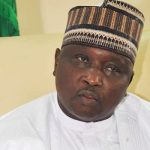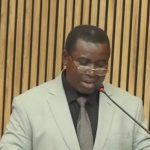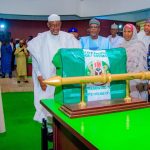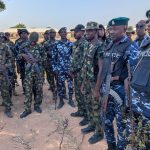Connecting the dots…
When President Tinubu stepped into office, one of his early tasks was moving the banking supervisory unit of the CBN to Lagos. Why was that? Simply because of data. After analyzing the data, he decided to push for the tax reform bill.
If we may ask, who are those heading the units in Lagos? Answer that for yourself.
With such a unit and the data at his disposal, he can monitor everyone, including his most powerful contenders or opposition members, under a financial radar. Could this be the sole reason why the banking unit of the CBN was moved to Lagos? Ask Tinubu.
Where are the three most populous and commercially viable states hosting investment opportunities for political opposition members in Nigeria? The answer is simple: Lagos, Rivers, and Kano. Can we also say that these three states have the highest banking activities compared to others? Obviously, yes.
Let us recall what transpired in the recent elections that brought President Tinubu to power. Lagos traders, through Peter Obi’s support from the Southeast, posed a serious threat to Tinubu’s victory in Lagos. These are traders who have spent their entire business lives in Lagos and keep their financial records in banks. Don’t you think their data is a goldmine for an unapologetic tax collector who emerged as president after a fierce election battle? Since they gave him a run for his money, he will surely tax each of them on their transactions. And to do just that, he must start by scrutinizing banking data (not necessarily their personal accounts). Only his trusted allies can handle such a sensitive assignment. His eyes are wide open, monitoring Lagos through the financial data at his fingertips.
Now, let’s fast-track to Rivers.
Rivers’ primary source of revenue is oil—no doubt about that. Tinubu had Wike in his grip from the beginning of the campaign. In my view, Tinubu and Wike are like cousins—political cousins. One talks fast, the other talks slow, but one thing they have in common is that you can only understand them when they want you to. Both emerged as political godfathers in their respective states, and since they were governors for eight years in some of the biggest revenue-generating states, they understand each other well.
They had a secret plan and made a deal—until Wike’s political godson, Fubara, decided to denounce him. Could it be that Tinubu discovered something about Rivers’ financial standing through banking data? Perhaps their initial plan was purely political, but now, scientific data is shaping his new strategy. With banking transactions in Rivers under his watch, Tinubu may be having sleepless nights after discovering how financially strong his opponents are in the state.
While Nigerians blamed Wike for the ongoing crisis in Rivers, Tinubu laughed and reassured Fubara—yes, Fubara—that things would be fine once his plans were fully executed. Would you be surprised if Tinubu is in direct contact with Fubara? In the end, Fubara may emerge as Tinubu’s godson. Keep connecting the dots…
Now, what about Kano? Do you know why Tinubu decided to soft-pedal on the Kano crisis? Because banking data revealed that Kaduna generates more monthly revenue than Kano. That was when he shifted his attention to Governor Sani and intensified his attack on El-Rufai through the EFCC and ICPC.
Tinubu knows that Kano is too sensitive and fragile to withstand a serious constitutional crisis, which could escalate into a national emergency. So, he has to find a better way to take control of Kano. Relying on Ganduje and his team won’t give him the desired results. Nevertheless, Kano must be conquered—one way or another.
By analyzing banking data, he understands that Kano’s economic power lies in retail markets. A strategic approach would be to use a commodity price crisis to weaken traders’ financial strength. Instead of tackling Kano through the pending emirship crisis, he may opt to open up borders, allowing an influx of foreign goods and commodities into the Kano market. This would weaken traders’ capacities, forcing them to seek loans through banks—and it’s already happening. In a few weeks, watch out for a political crisis in Kano.
In a nutshell, Tinubu may appear old and frail, but his experience has taught him how to use his head to get what he wants. You may dismiss everything I wrote as mere speculation, but what if he is using an even more sophisticated and advanced political strategy?
Can you connect the dots?
Comrade IG Wala
Human Rights and Anti-Corruption Activist Entrepreneur and Humanitarian President/Founder, GivFree





